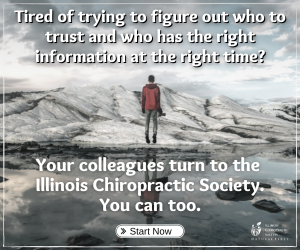
How Quickly Should I Document?
The answer to this question is interesting because various health plans rely on Medicare’s definition: “as soon as practicable.” However, each carrier has its own requirements, which should be outlined in their provider manuals. Watch the video to learn more!
Transcript:
From time to time, we get questions from doctors about how quickly after a visit, that documentation or medical records must be complete and must be taken care of, and in the record. The answer is interesting because as we begin to dig into this and as we look at the different provider manuals and contracts, and guidelines that are out there for the various carriers, whether they be NGS which is, which is our Medicare carrier, or our Medicare contractor for our particular region and state, or Blue Cross Blue Shield of Illinois, United Healthcare and and others, it’s interesting because all of them actually point to Medicare’s definition.
What Medicare lays out in its guidelines is this Medicare indicates that the documentation is required to be completed as soon as practicable after the service is provided in order to maintain an accurate medical record. So the key is here as soon as practicable. Now, what’s interesting, even though they point to this, they all began to make their own, you know, refinements in that particular area and give a bit more clarity as to exactly what they expect. Now, NGS is interesting. They’re the tightest of everyone that we looked at. And really, most of what we looked at the dates range from within 24 hours should be done on the data service. Almost all of them say that, but you have between 24 hours and at the very most 72 hours. However, don’t just go with that guideline, you really need to understand what the carriers expect and what’s in their provider manuals. Now, NGS is the most restrictive NGS indicates that generally speaking, the service should be documented on the same date on which it is performed. The service should be documented on the same date on which it is performed. Now, it seems to be a bit tighter than even what Medicare lays out, even though NGS is a Medicare contractor.
Now let’s look at UHC. And what does UnitedHealthcare indicate now UnitedHealthcare indicates a bit more broad, and less specific, they say to generate documentation at the time of service or shortly thereafter. So that even seems to be a bit tighter than what we might find with Medicare’s definition. And now BlueCross BlueShield actually really kind of lays this out. They point specifically to Medicare yet again, another carrier does that. But then they kind of broaden that a bit more. They indicate that a reasonable expectation would be no more than 24 to 48 hours away from the service yourself. So if you’re documenting cases, you see a patient that’s got Blue Cross Blue Shield what BlueCross says it should be no more than 24 to 48 hours after that service is completed. And that is if you do not get it done on the same date of service. But they add to this and this is where it gets very interesting and problematic. Is it anything after 48 hours may be considered unreasonable. When we start talking about an insurance carrier talking about something being unreasonable. Just know that that’s really important to notate because if it’s unreasonable, then it very well may not be reimbursable.
So we want you to know these timelines. We’re going to cover this again next week. In our video next week. We’re going to talk about the risks associated with delaying past the guideline areas and the manual requirements and each one of these carriers is for Medicare or whatever the case might be. What are some of the risks associated if you do not get them done in an appropriate amount of time? We’ll catch you next week.



















